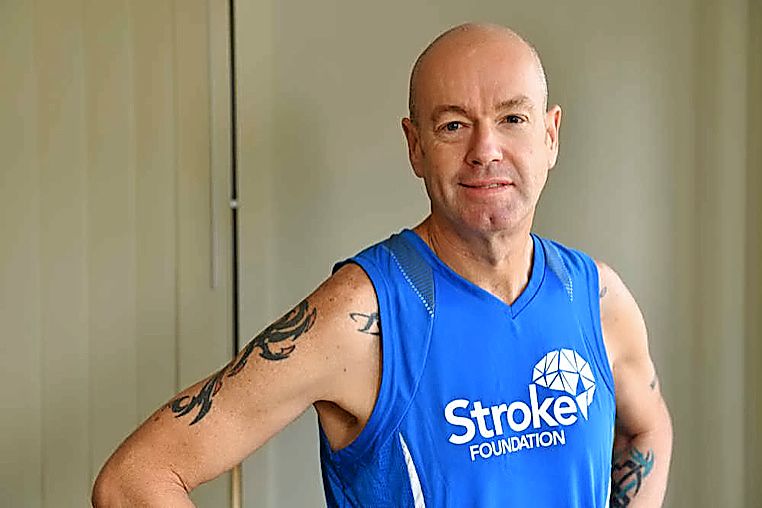It’s hard to believe looking at him now, but a month ago Bill Deering was on the brink of death.
The 45-year-old Point Cook father of four suffered a stroke at home and died twice in the ambulance on the way to Sunshine Hospital. Doctors were quick to act and clot busting drugs helped result in a miraculous recovery.
Within hours, Mr Deering got his speech back. He was discharged from hospital four days later and completed a marathon in Perth two weeks after that.
The running enthusiast will next run a 160-kilometre ultra marathon at the You Yangs this weekend, and at the end of this month he will run the half-marathon with Stroke Foundation chief executive Sharon McGowan in Run Melbourne.
Mr Deering, who suffered his first stroke when he was 32, said his quick reaction and recovery last month was vastly different to that of his first stroke, after he waited almost 20 hours to go to the hospital.
“I was a shift worker at the time, so I thought I was just overworked … the damage that was caused was permanent,” he said.
To this day, Mr Deering has slow dexterity on the left-hand side of his body, and has no feeling in his left leg from the knee down.
“A stroke doesn’t really discriminate. A lot of people do think – as I did when I had my first one – that stroke is an old people’s thing, but it’s not.
“[It’s important] to understand the signs of stroke, and to get to hospital as soon as possible.
“My first stroke, I didn’t seek medical treatment until 20 hours later, and I’m still dealing with those deficits, whereas my MRIs and scans from this stroke show almost no signs of a clot.”







